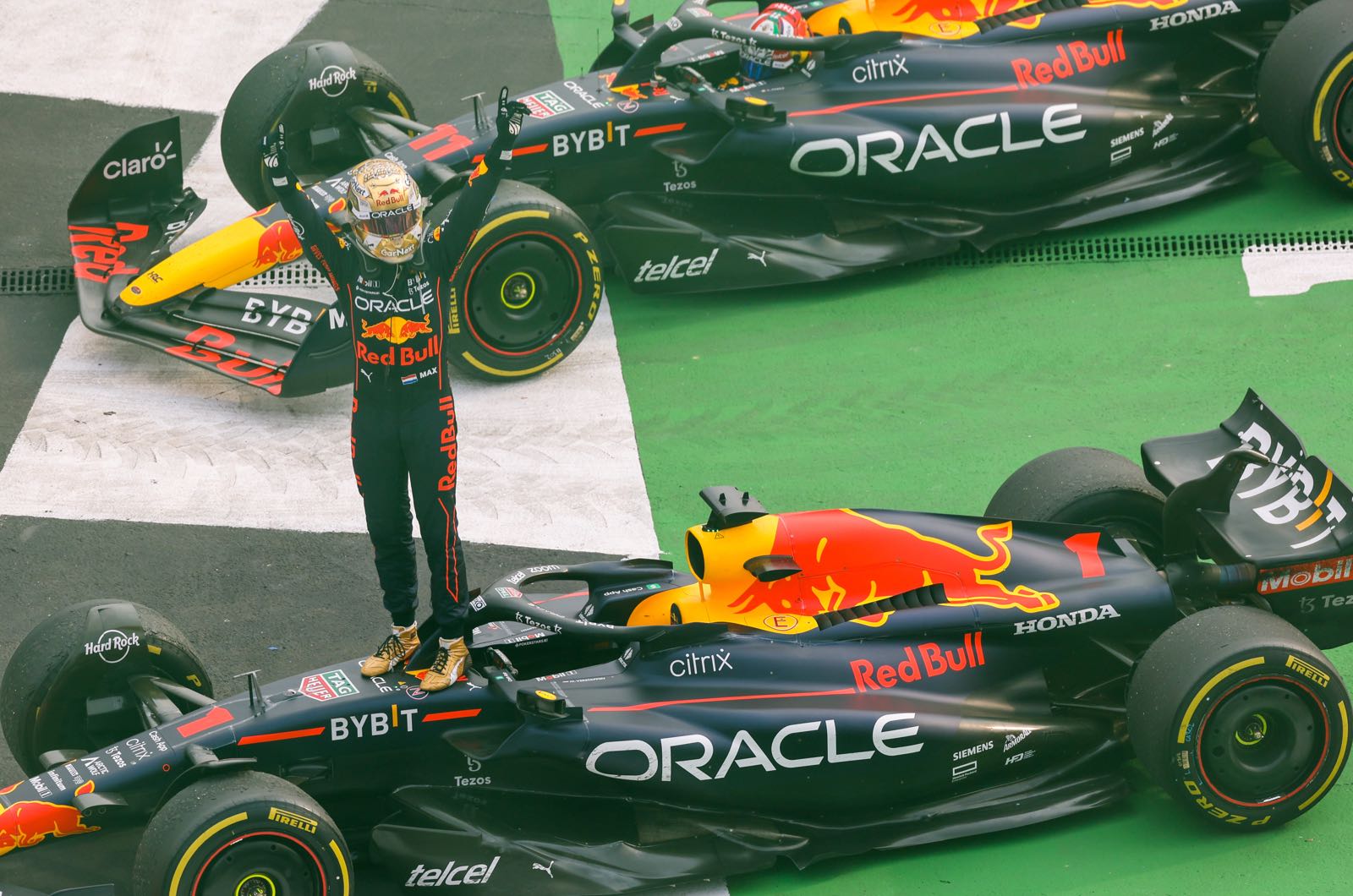Let's talk about Red Bull boycott. You've probably heard whispers about it, maybe even seen hashtags or petitions online. But what exactly is going on? Is it just another social media trend, or is there something bigger brewing beneath the surface? In this article, we’re diving deep into the world of Red Bull boycotts, unpacking the reasons, the impact, and the potential consequences for both the company and its loyal fans.
Now, before we get into the nitty-gritty, let's set the stage. Red Bull has been a staple in the energy drink world for decades. It's not just a drink; it's a culture, a lifestyle. But like any big brand, it’s not immune to controversy. And that's where the boycott comes in. People are raising questions about the ethics of the company, its marketing practices, and its environmental impact.
So, why should you care? Well, if you're someone who relies on that can of Red Bull to get through the day, or if you're just curious about how consumer actions can drive change, this article is for you. We'll break down the reasons behind the boycott, explore the arguments from both sides, and give you the tools to make an informed decision. Let's dig in!
Read also:Paul Walker Brother The Untold Story Of A Family United In Love And Legacy
Why Are People Boycotting Red Bull?
Alright, so let’s get to the heart of the matter. Why are people even talking about boycotting Red Bull? There are several reasons, and they’re not all about the drink itself. It's more about the company's practices and its impact on society. Here are some of the key issues:
- Environmental Concerns: Red Bull has faced criticism for its packaging, which is often non-recyclable. The aluminum cans may be recyclable, but the plastic rings that hold them together? Not so much.
- Marketing Tactics: Some argue that Red Bull's marketing strategies target young people, encouraging risky behavior. Think about those extreme sports ads—cool, but maybe a little reckless?
- Corporate Ethics: There have been allegations of unethical business practices, including disputes over ingredient sourcing and labor conditions in some of their factories.
These are just a few of the reasons why people are calling for a Red Bull boycott. But is it enough to sway public opinion? That’s what we’ll explore next.
Understanding the Impact of Red Bull Boycott
Now, let’s talk about the impact. A boycott is more than just saying "no" to a product. It's about making a statement, sending a message to the company that their practices aren't acceptable. But does it actually work?
Historically, boycotts have led to significant changes in corporate behavior. Take Nike, for example. Back in the '90s, they faced a massive boycott over sweatshop labor. The pressure from consumers forced them to overhaul their supply chain and improve working conditions. Could the same happen to Red Bull?
Here's the thing: Red Bull is a global brand with deep pockets. A boycott might not hit them as hard as it would a smaller company. But if enough people participate, it could definitely make them sit up and take notice. And that's where the power of the consumer comes in.
Who’s Leading the Red Bull Boycott?
So, who’s behind all this? It’s not just one group or organization. There are several grassroots movements, environmental groups, and even concerned citizens who’ve taken it upon themselves to spread the word. Social media has played a huge role in amplifying these voices.
Read also:Cr7s First Son The Untold Story Of Cristiano Ronaldos Family Journey
Platforms like Twitter and Instagram have become hotbeds for discussions about corporate responsibility. Hashtags like #BoycottRedBull and #SustainableEnergyDrinks have gained traction, with users sharing their reasons for supporting the boycott. It’s a movement that’s gaining momentum, one tweet at a time.
Red Bull Boycott: The Stats and Figures
Numbers don’t lie, right? Let’s take a look at some of the stats surrounding Red Bull and the boycott movement:
- Red Bull sold over 8.4 billion cans globally in 2022.
- Studies show that only about 30% of aluminum cans are recycled worldwide.
- A 2021 survey found that 65% of millennials are more likely to boycott a brand if they believe it engages in unethical practices.
These numbers paint a picture of a brand that’s both wildly successful and increasingly scrutinized. The question is, will the boycott movement gain enough traction to make a real difference?
What’s Red Bull Saying About the Boycott?
Of course, Red Bull isn’t sitting idly by while people call for a boycott. The company has responded to some of the criticisms, claiming that they’re working to improve their practices. For example, they’ve pledged to make all their packaging recyclable by 2025.
But is it enough? Critics argue that these promises are just lip service, meant to placate consumers without making any real changes. Others believe that Red Bull is genuinely trying to address the issues, but it’s a slow process.
Ultimately, the truth lies somewhere in the middle. Like any big corporation, Red Bull has a lot to lose if they don’t adapt to changing consumer expectations. But whether they’ll do enough to satisfy the boycotters remains to be seen.
Red Bull’s Environmental Initiatives
Let’s zoom in on one of the key issues: the environment. Red Bull has launched several initiatives aimed at reducing their carbon footprint and promoting sustainability. Here are a few examples:
- Investing in renewable energy for their factories.
- Partnering with recycling programs to increase can recycling rates.
- Exploring alternative packaging materials that are more eco-friendly.
While these steps are commendable, some critics argue that they’re not enough to offset the damage already done. It’s a balancing act for Red Bull—trying to maintain their bottom line while addressing consumer concerns.
Alternatives to Red Bull: What Are Your Options?
If you’re considering joining the Red Bull boycott, you might be wondering what else is out there. Fortunately, there are plenty of alternatives to choose from. Here are a few popular options:
- Monster Energy: Another big name in the energy drink game, though it comes with its own set of controversies.
- Runa: A natural energy drink made from guayusa leaves, which are sustainably sourced.
- Mate Factor: Offers a range of organic and fair-trade energy drinks that focus on sustainability.
These are just a few examples. There’s a growing market for eco-friendly and ethically produced energy drinks, so you’re sure to find something that fits your values.
Red Bull Boycott: The Pros and Cons
Before you jump on the boycott bandwagon, it’s worth weighing the pros and cons. Here’s a quick breakdown:
Pros:
- Raises awareness about corporate responsibility and ethical practices.
- Encourages companies to make positive changes in response to consumer pressure.
- Allows individuals to express their values through their purchasing decisions.
Cons:
- May not have a significant impact on a global brand like Red Bull.
- Risks alienating loyal fans who don’t agree with the reasons for the boycott.
- Can sometimes lead to misinformation or oversimplification of complex issues.
As with anything, there’s no one-size-fits-all answer. It’s up to each individual to decide whether participating in the Red Bull boycott aligns with their values and goals.
Will the Red Bull Boycott Lead to Change?
This is the million-dollar question. Can a boycott actually lead to meaningful change? The answer is yes—but it depends on several factors. First, there needs to be widespread participation. A handful of people boycotting isn’t going to make much of a dent in Red Bull’s profits. But if thousands, or even millions, of consumers join the movement, it could send a powerful message.
Second, the boycott needs to be sustained over time. Short-term boycotts may grab headlines, but they’re less likely to result in lasting change. It’s the long-term commitment that forces companies to take notice and make adjustments.
Finally, the boycott needs to be accompanied by constructive dialogue. Simply saying “no” isn’t enough. Consumers need to communicate clearly what changes they want to see and why those changes matter.
Case Studies: Successful Boycotts
Let’s look at some examples of successful boycotts to see what we can learn:
- Starbucks: In 2004, a boycott over their coffee sourcing practices led to the company committing to Fair Trade certification for more of their products.
- Boycott Nestlé: A decades-long boycott over baby formula marketing practices eventually led to changes in the company’s policies.
- Boycott Ivanka Trump Products: This boycott, which started in 2017, led to several retailers dropping her line of clothing and accessories.
These examples show that boycotts can work, but they require persistence, organization, and a clear message.
Red Bull Boycott: The Bottom Line
So, where does that leave us? The Red Bull boycott is a complex issue with no easy answers. On one hand, it highlights important concerns about corporate responsibility and ethical practices. On the other hand, it raises questions about the effectiveness of boycotts in driving real change.
If you’re considering joining the movement, take the time to educate yourself about the issues. Read up on both sides of the argument, and decide what matters most to you. Remember, your purchasing decisions have power. Use them wisely.
And don’t forget to share your thoughts in the comments below. Are you for or against the Red Bull boycott? Let’s keep the conversation going!
Conclusion
In conclusion, the Red Bull boycott is more than just a trend—it’s a reflection of the growing demand for corporate accountability. Whether or not it leads to significant change remains to be seen, but one thing is certain: consumers have more power than ever before. By making informed choices, we can drive the changes we want to see in the world.
So, what’s next? If you found this article helpful, why not share it with your friends? Spread the word, start a discussion, and let’s keep the momentum going. Together, we can make a difference!
Table of Contents
- Why Are People Boycotting Red Bull?
- Understanding the Impact of Red Bull Boycott
- Who’s Leading the Red Bull Boycott?
- Red Bull Boycott: The Stats and Figures
- What’s Red Bull Saying About the Boycott?
- Red Bull’s Environmental Initiatives
- Alternatives to Red Bull: What Are Your Options?
- Red Bull Boycott: The Pros and Cons
- Will the Red Bull Boycott Lead to Change?
- Red Bull Boycott: The Bottom Line


